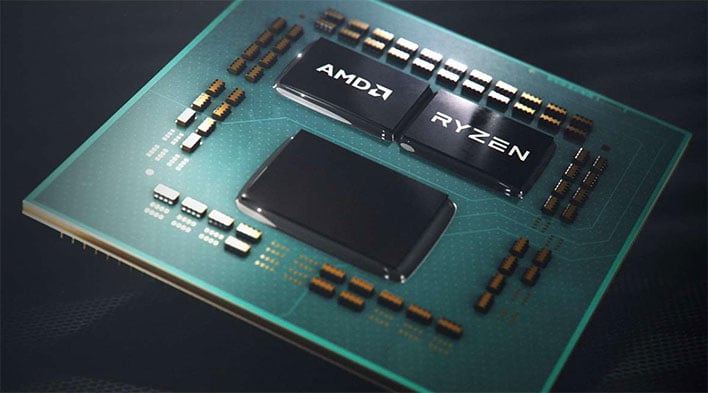AMD Zen 3 CPU Architecture Rumored To Provide Significant IPC Uplift Over Zen 2

AMD has been generous enough to provide a roadmap for Zen through several generations, so we already know some details about Zen 3—it is being built on a refined 7-nanometer manufacturing process (7nm+), and the design phase is already finished. Some details remain elusive, however, though a recent leak may have shed some light on what kind of performance we can expect out of Zen 3.
Before we get to that, let's quickly recap the evolution of the Zen architecture, as it pertains to the node and launch time frames...
- Zen 4: possibly 6nm or 5nm, in design, slated to launch in 2021 (Ryzen 5000 series?)
- Zen 3: 7nm+, design is completed, slated to launch in 2020 (Ryzen 4000 series?)
- Zen 2: 7nm, launched in July 2019 (Ryzen 3000 series)
- Zen+: 12nm, launched in April 2018 (Ryzen 2000 series)
- Zen: 14nm, launched in February 2017 (Ryzen 1000 series)
Zen 2 has only been on the market for a few months, but AMD is not standing pat, with Zen 3 on track to launch next year. It is likely to be the last version of Zen to utilize the AM4 socket.
AMD Zen 3 CPU Architecture Gets An IPC Lift
As to what kind of performance we can expect, CrimsonRayne at RedGamingTech cites some interesting information received from a "good source" of his, saying speculation of only a modest bump in IPC (instructions per clock) is inaccurate. When asked by CrimsonRayne if the IPC gains would be in the neighborhood of 5-8 percent, the source said it would be even higher.

AMD has already confirmed Zen 3 will retain an 8-core per chiplet design, as found in Zen 2. However, it is making some changes to the cache arrangement. Whereas Zen 2 features 16MB of L3 cache per core complex (CCX) within a core complex die (CCD), Zen 3 will have a shared cache design consisting of 32MB or more of L3 cache for each CCD.
This shift in design means each core would share the whole lot of L3 cache instead of having access to just a portion of the overall allotment. It should also reduce latency.
AMD did not share what kind of performance improvement this change in design would net, but if the leaked information is accurate, a greater than 8 percent IPC uplift over Zen 2 is impressive. It also puts the pressure on Intel, which has already admitted to losing some CPU share to AMD.
In addition to the claimed IPC uplift, the source also said a report on a Chinese forum of an engineering sample of a Zen 3 processor hitting 100-200MHz higher clocks than what Zen 2 is capable of, is accurate.
Summed up, we are looking at a new cache hierarchy, faster clockspeeds, and more than an 8 percent IPC uplift when Zen 3 arrives. Good stuff, if all of that comes true.

